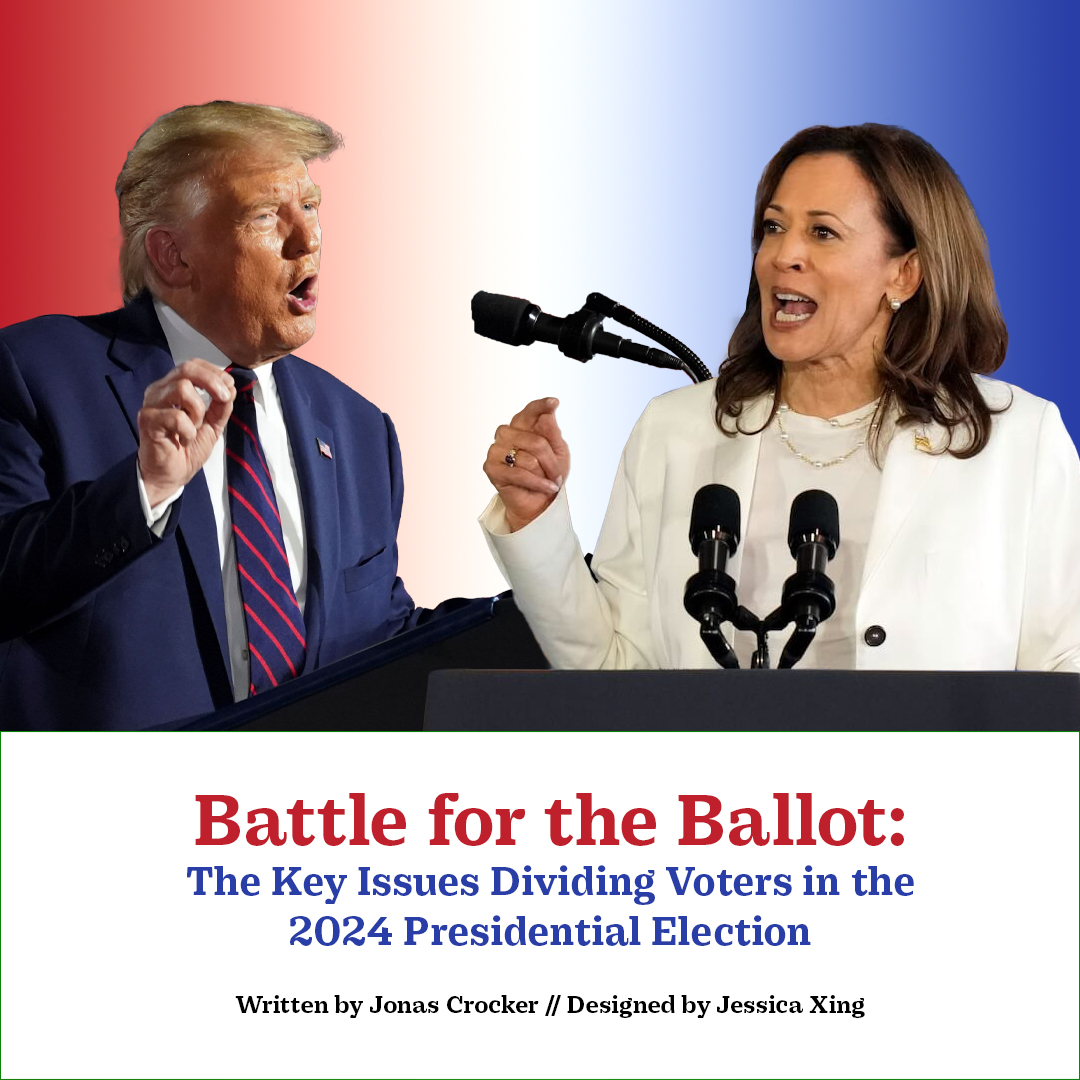
Following President Joe Biden’s withdrawal from the 2024 presidential race, the Democratic Party faced the urgent question of who would replace him as the party’s nominee. Despite initial skepticism surrounding a potential Kamala Harris candidacy, the Democratic Party has since rallied behind her, solidifying her position as a strong opponent against Former President Donald Trump.
The victor of this election will have the power to alter the country’s trajectory for decades to come — and the people of the United States, ever polarized and diversified, have a decision to make. As Nov. 5 quickly approaches, all eyes are on just seven battleground states: Arizona, Georgia, Michigan, Nevada, North Carolina, Pennsylvania and Wisconsin. These key states are critical for both Harris and Trump in their paths to the White House — neither candidate can win without them.
For voters across the country, the economy remains the biggest point of contention, with 93% of Trump supporters and 68% of Harris supporters citing the economy as a very important issue. If elected in 2024, Trump intends to institute his “20 Core Promises.” Highlights of this plan include the removal of taxes on tips and the extension of the 2017 Tax Cuts and Jobs Act, which saw a reduction in individual and corporate taxes. Conversely, Harris intends to make rent and home ownership more affordable, as well as put an end to corporate price gouging, a process by which retailers unjustly charge exorbitant prices for high-demand goods.
Although the economy remains a top concern, immigration is another controversial topic of debate that could sway voters towards one candidate or the other– especially in a border state like Arizona. As vice president, many Republicans feel that Harris made little progress along the border during her four years in office. In a BBC interview regarding the situation at the border, Douglas Nicholls, the Republican mayor of Yuma, Arizona, remarked, “We had record numbers of people, numbers that far exceeded anything we’d ever seen before, including over three times the population of my city in one year. Those were scary numbers.” Given Arizona’s proximity to the Mexican border, this perceived shortcoming could be a significant obstacle in Harris’s path to victory and is likely to play a major role in shaping voters’ decisions on the ballot.
While Harris struggles with backlash over immigration, others have voiced their frustration with Trump, citing his traditional stance on reproductive health. In a key state like Nevada, where abortion rights are on the state ballot in November, popular support for increased bodily autonomy could be the Achilles heel in Trump’s campaign.
In April 2023, Nevada Democratic senator Jacky Rosen spoke out against Republicans in a speech to the U.S. Senate, declaring,
“Since the Supreme Court overturned long-standing protections for the fundamental right to access abortion care nearly a year ago, we have seen countless attacks on women’s reproductive rights from anti-choice states across our nation. States that are banning abortions without exceptions for rape or incest. States that are risking the lives of women who have miscarried … I’m not going to let that happen … we are a proud pro-choice state.”
As tensions continue to rise in this high-stakes election, it has never been more important for your voice to be heard. No matter where you live or where you stand on these issues, the most important thing this election season is to stay informed and vote!